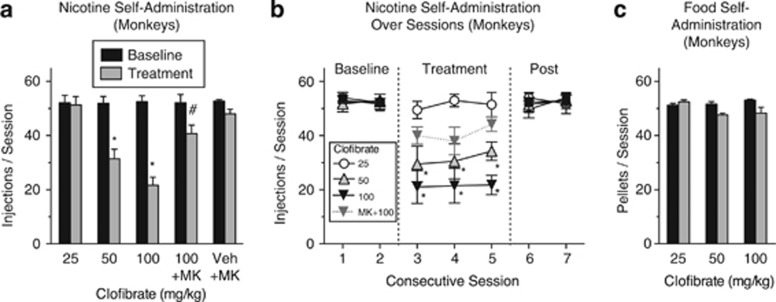Figure 3.
Clofibrate decreased nicotine self-administration, but not food self-administration, in squirrel monkeys. (a) Nicotine injection rates averaged across the 3 days of treatment and across the two preceding baseline days. (b) Nicotine injection rates on each day of testing, the two preceding baseline days, and the two sessions after treatment was discontinued (‘Post'). The two higher doses of clofibrate decreased nicotine intake during each day of testing. The PPARα antagonist MK886 (‘MK' 1 mg/kg) blocked the effect of clofibrate (100 mg/kg), indicating that clofibrate's effects on nicotine intake were due to its actions at α-type peroxisome proliferator-activated receptors (PPARα). (c) Clofibrate did not significantly affect food-rewarded behavior in monkeys tested under conditions that paralleled the nicotine self-administration procedure; n=4 for nicotine self-administration and n=3 for food. Clofibrate's vehicle was given before each baseline session. In all conditions, 10 lever responses were required for each nicotine injection or food pellet, and sessions lasted 1 h. *Significant decrease compared with baseline. #Significant increase compared with 100 mg/kg clofibrate condition. All data were presented as mean±SEM.

